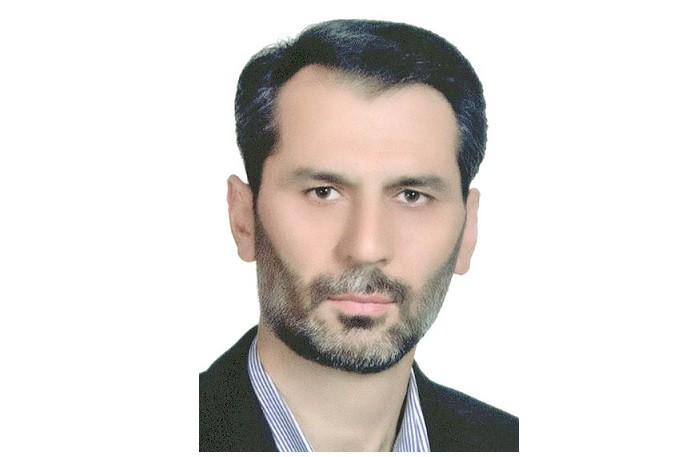
MSC Targets 7m Tons of Flat Sales This Year

“Iran’s largest flat producer MSC sold 2.18 million tons during the first four months of the current fiscal year (March 21-July22), up 19% compared to last year’s corresponding period. Domestic sales comprised 1.89 million tons of the total output, up 53% year over year,” MSC’s website quoted Mahmoud Akbari as saying.
 Mobarakeh is aiming to increase the production of HRC and slabs, while maintaining the current production capacity of cold-rolled and coated coils.
Mobarakeh is aiming to increase the production of HRC and slabs, while maintaining the current production capacity of cold-rolled and coated coils.
Exports for the four-month period, mostly made up of slabs, were down 64% to 290,000 tons. Shipments of MSC’s primary product, hot-rolled coil, were down 83% to 104,000 tons.
“Mobarakeh’s priority has always been and still is supplying the local demand, but this does not mean putting an end to exports altogether. Gaining recognition and acceptance in international markets is no small feat and must be pursued. Moreover, capacity exceeds demand for certain products such as slabs and our only choice is exports,” he added.
Akbari said MSC is aiming to increase the production of HRC and slabs, while maintaining the current production capacity of cold-rolled and coated coils.
The company’s finished prices are bound to increase further as market dynamics change.
Electrode prices have surged from $2,000 to about $20,000 due to supply scarcity and heavy melting scrap has jumped to about 12,700 rials ($0.33) per kilograms. Jolts in Khouzestan Steel Company’s ingot quotes have also caused iron ore prices to rise accordingly.
MSC’s expansion plans are moving on a fast track. Its 5-million-ton per year pellet-making plant was inaugurated in Khorasan Razavi’s iron-rich Sangan region last week with a 10-trillion-rial ($263.15 million) investment. The project took 36 months to be completed.
According to MSC Managing Director Bahram Sobhani, the company’s current capacity stands at 10.3 million tons of crude steel and 11.8 million tons of direct-reduced iron per year.
Utilizing MSC’s capacitates to the full requires 17.5 million tons of pellets per year and the new 5-million-ton capacity, alongside 3.5 million tons of external purchases and 7.2 million tons from previous plants ensures MSC’s sustained output.
The capacity expansion of MSC’s subsidiary, Saba Steel Complex, from 700,000 tons per year to 1.6 million tons is also scheduled to be completed soon, “making Mobarakeh even more capable of meeting demand for flat products”, Akbari said.
The flagship producer took control of the large-cap Mines and Metals Development Investment Company back in mid-July by acquiring a 37% stake in it. MMDIC owns large stakes in Iran’s major iron ore producers, effectively increasing MSC’s potential influence on price determination for the long-term contracts for iron ore and pellet, as well as on export and other policies.
Together with its subsidiaries, MSC is the largest flat steel producer in the Middle East and North Africa region, and Iran’s largest steelmaker, supplying 20% of the region’s steel demand and accounting for 1% of Iran’s GDP.


Trump weighs using $2 billion in CHIPS Act funding for critical minerals

Codelco cuts 2025 copper forecast after El Teniente mine collapse

Electra converts debt, launches $30M raise to jumpstart stalled cobalt refinery

Barrick’s Reko Diq in line for $410M ADB backing

Abcourt readies Sleeping Giant mill to pour first gold since 2014

Nevada army depot to serve as base for first US strategic minerals stockpile

SQM boosts lithium supply plans as prices flick higher

Viridis unveils 200Mt initial reserve for Brazil rare earth project

Tailings could meet much of US critical mineral demand – study

Kyrgyzstan kicks off underground gold mining at Kumtor

Kyrgyzstan kicks off underground gold mining at Kumtor

KoBold Metals granted lithium exploration rights in Congo

Freeport Indonesia to wrap up Gresik plant repairs by early September

Energy Fuels soars on Vulcan Elements partnership

Northern Dynasty sticks to proposal in battle to lift Pebble mine veto

Giustra-backed mining firm teams up with informal miners in Colombia

Critical Metals signs agreement to supply rare earth to US government-funded facility

China extends rare earth controls to imported material

Galan Lithium proceeds with $13M financing for Argentina project

Kyrgyzstan kicks off underground gold mining at Kumtor

Freeport Indonesia to wrap up Gresik plant repairs by early September

Energy Fuels soars on Vulcan Elements partnership

Northern Dynasty sticks to proposal in battle to lift Pebble mine veto

Giustra-backed mining firm teams up with informal miners in Colombia

Critical Metals signs agreement to supply rare earth to US government-funded facility

China extends rare earth controls to imported material

Galan Lithium proceeds with $13M financing for Argentina project

Silver price touches $39 as market weighs rate cut outlook

















